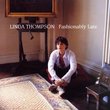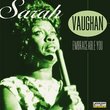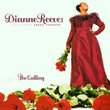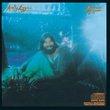| All Artists: Dianne Reeves Title: In the Moment: Live in Concert Members Wishing: 0 Total Copies: 2 Label: Blue Note Records Original Release Date: 7/18/2000 Release Date: 7/18/2000 Album Type: Live Genres: Jazz, Pop, R&B, Broadway & Vocalists Styles: Traditional Jazz & Ragtime, Vocal Jazz, Bebop, Oldies, Vocal Pop, Traditional Vocal Pop Number of Discs: 1 SwapaCD Credits: 1 UPCs: 724352514120, 0724352514151, 724352514151 |
Search - Dianne Reeves :: In the Moment: Live in Concert
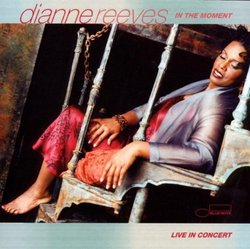 | Dianne Reeves In the Moment: Live in Concert Genres: Jazz, Pop, R&B, Broadway & Vocalists
For three decades, Dianne Reeves has been one of the most popular vocalists, thanks to her well-produced recordings and engaging live shows. On this date, recorded before an audience of 300 fans, Reeves weaves her trademar... more » ![header=[] body=[This CD is available to be requested as disc only.]](/images/attributes/disc.png?v=a4e11020) ![header=[] body=[This CD is unavailable to be requested with the disc and back insert at this time.]](/images/attributes/greyed_disc_back.png?v=a4e11020) ![header=[] body=[This CD is unavailable to be requested with the disc and front insert at this time.]](/images/attributes/greyed_disc_front.png?v=a4e11020) ![header=[] body=[This CD is unavailable to be requested with the disc, front and back inserts at this time.]](/images/attributes/greyed_disc_front_back.png?v=a4e11020) |
Larger Image |
CD DetailsSynopsis
Amazon.com For three decades, Dianne Reeves has been one of the most popular vocalists, thanks to her well-produced recordings and engaging live shows. On this date, recorded before an audience of 300 fans, Reeves weaves her trademark, hornlike contralto over smooth grooves that cross over mainstream jazz, contemporary pop, and world-music lines. Her band, featuring keyboardist Otmaro Ruiz and Wynton Marsalis's bassist, Reginald Veal, delivers the Cat Stevens-associated church hymn "Morning Has Broken," Mongo Santamaria's classic "Afro-Blue," and Cole Porter's immortal "Love for Sale." She also pays homage to jazz's Brazilian roots with her splendid, spirited readings of Antonio Carlos Jobim's "Triste," a duet with guitarist Romero Lubambo, and Milton Nascimento's "Bridges." On her lyrical, midtempo "Come In," Reeves's cousin, keyboardist George Duke, turns in a brilliant solo, and "The First Five Chapters" is an autobiographical number inspired by author Portia Nelson. But the zenith of the set is "The Best Times (Grandma's Song)," her new version of her most requested song, "Better Days," which sings the praises and virtues of family values better than our politicians. --Eugene Holley Jr. Similarly Requested CDs
|
CD ReviewsJust call her...DIANNE REEVES, M.D. kkapsis | Massachusetts, USA | 04/30/2001 (5 out of 5 stars) "("M.D." in this case stands for musical doctor...) Those of us who have seen DR live know it is an experience unlike any other. Onstage, she makes her own rules and then breaks them-- seeming to constantly reinvent her songs/voice/ musical identity, all the while maintaining an intimacy with the audience that is as easeful as it is proufound/magical. I think that she does a number of very radical things with her music in general, and that her particularly radical style is exemplified by her performances on stage, and here in this album. When I say radical, I mean: somehow during the creative process of performing, she makes the radical choice to include the listener/audience over and over again EXPLICITLY in her creation. She has, I think, an innate and extremely rare understanding of the nexxus of human emotion and art (who else would dare put forth an album as raw and complex and contradicory as "Art and Survival'?) and is able to use her talent to make the final product far more than the sum of its parts. She goes beyond her role and status as an entertainer, giving medicine to her audience, medicine that lives on in the human heart long after the concert is over. Ironically, it's this, the most astounding aspect of her musicianship, that makes her most vulnerable to criticism. Most will agree on the dazzling voice, but: one reviewer of this album called "5 Chapters" "self-indulgent"; others have claimed she is too experimental and not a "true" jazz singer. I, myself, referred to some songs on "Bridges" as "didactic" (see review). It was listening to this live album that made it click: refrains "Testify" and "Mista" now are embedded in my consciousness, self-activating affirmation chants that I hold dear in times of spiritual/emotional crisis. These songs annoyed me when I first heard them! Now I understand what she's doing: disobeying the sacred unspoken tenet of the European sensibility, that says we must "show but not tell" in art. The tenet the enforces the division between the experience and the expression. In the live world with DR, there is no division: when she greets the audience, she's singing; when she introduces each and every member of the band, telling stories all the way [left out on this album :( ], she's singing; when she talks about her start in the music business, her love of singing, her family, her heart being broken, she's doing this singing-talking thing that as far as I know is completely original to her, at least to the extent that she does it. And the singing is beautiful, and the talking is interesting-- thus, again-- more than the sum of their parts: the synergy of her miraculous presence and talent. Unmatched. She's THE singer for this millenium. I'm running out of room here but the truth is that Dianne is the queen of jazz...and the doctor of our broken hearts. Let us praise her..." The spirit of jazz Roberto Ballati | Moscow, Russian Federation | 07/30/2000 (5 out of 5 stars) "Once again Dianne Reeves demonstrates with her music she's one of a kind, one of the very few vocalist that relly say something new and, no matter what the critics say about her not focusing on pure jazz, SHE IS the perfect incarnation of what the spirits of jazz is: challenging the boundaries of music, pursuing freedom,improvisation, cultivating an exquisite taste with a sensibility that goes deep down into gospel, soul, r&b, afro, reggae to find a reveal new treasures. Above all this, naturally, stands her voice: warm, deep, rich in coulour and expression contralto,a voice guided by a sense of rythm and technical mastership going from moaning, caressing, soaring, roaring, culminating with an ability to scat that leaves you speechles. This time Diane's been caught in the rapture of a live performance, possibly her best dimension. She sing her heart out and kills you with a brilliant Brasilian trip: the acoustic reading of "Triste" is magnificient, matched by Nacimentos' "Bridges" that is already "the definitive cover" of this beautiful song. Then, she and her extraordinary band sweep you away with a salsa-latin flavoured "Love for sale" that will have even Cole Porter surely nodding with satisfaction from high above. What a voyage.. and then he comes George Duke playing the piano and dressing an old Dianne's hit "Come in" new, soulful and smooth and caressing and... beautiful... Each of the the songs of this superb set are simply stunning: a perfect collection to appreciate the art of Dianne Reeves, indeed. After her first, sensational "New Morning" live in Paris, this is the second chance to travel on the wings of real live jazz with one of the truest and best artists on the music scene today : when you're done, you just want to stand up and cry: Bravissima Dianne!" At last, THE GRAMMY Ken | Detroit | 05/23/2001 (5 out of 5 stars) "This is the CD that made the world take notice. This is not her best body of work. She has giving loving fans better then this and never won a Grammy. This just tells you what a big talent the world has been missing. On studio recordings, Miss Reeves is above the game. Her live shows as this, can never be surpassed. I would love to see her make another live CD covering some of her other favorites. But, if you never saw her live shows this is a treat."
|

 Track Listings (11) - Disc #1
Track Listings (11) - Disc #1